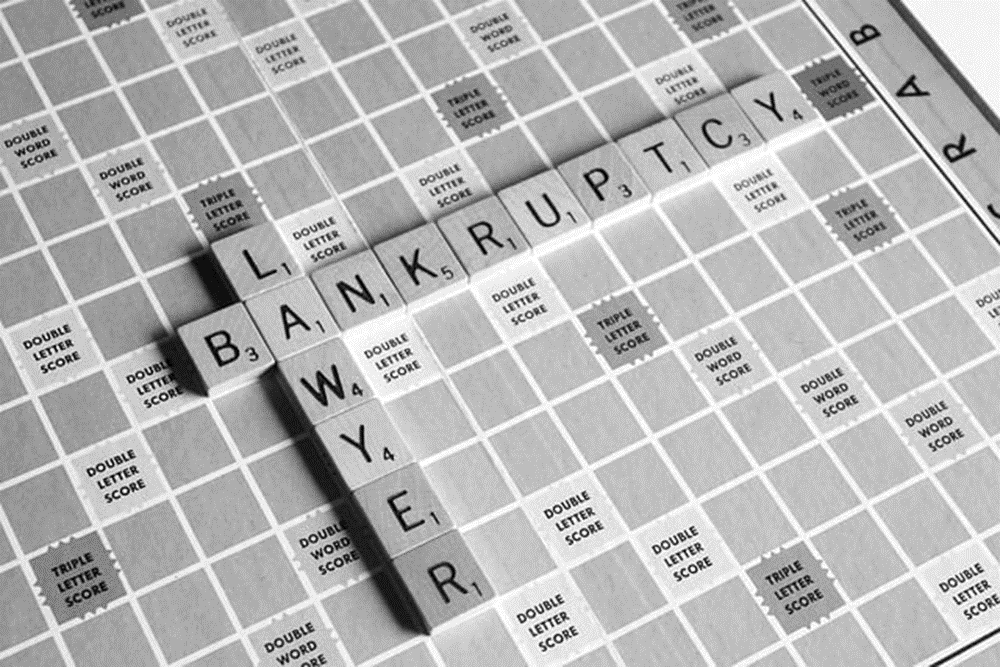Blog

What Happens if You Transfer Money Before Filing Bankruptcy in Georgia?
Bankruptcy | September 16, 2024 | Lee Paulk Morgan
Transfer of assets before bankruptcy can have serious consequences. Bankruptcy trustees can:
- Reverse fraudulent transfers to recover assets.
- Investigate financial transactions before filing.
- Report hidden assets to the court.
If you’re considering either Chapter 7 or Chapter 13 bankruptcy, you must keep in mind the rules about transferring money and handling other financial matters before you submit your petition. Protect your legal rights by consulting a Georgia bankruptcy attorney before transferring any funds. Getting details on the potential consequences is crucial to protect your financial future.
This article will delve into some key issues involving the transfer of assets and bankruptcy in Georgia, providing essential information for individuals facing financial hardship.
Georgia Bankruptcy Filers Should Avoid Transferring Property
One of the most common misconceptions about bankruptcy is that transferring assets before filing can shield them from creditors. While it might seem like a tempting solution, it’s a risky strategy with potentially severe consequences. Under certain circumstances, a transaction or attempt to transfer could even amount to bankruptcy fraud.
The court appointed bankruptcy trustee has the power to investigate financial transactions made within a specific timeframe before filing. If they determine that the transfer of assets was fraudulent or intended to hinder creditors, they can reverse the transaction and recover the transferred property. This means you could lose the asset you were trying to protect and face additional legal troubles.
It’s essential to remember that honesty and transparency are fundamental to a successful bankruptcy case. Attempting to hide assets can erode the trust between you and the bankruptcy court, potentially jeopardizing your discharge.
What Does a Chapter 13 Bankruptcy Trustee Do?
A Chapter 13 bankruptcy trustee is appointed by the court to oversee the reorganization of your debts. Unlike a Chapter 7 trustee, who liquidates assets to pay creditors, a Chapter 13 trustee focuses on developing a repayment plan.
The court appointed trustee collects payments from you and distributes them to your creditors according to the approved plan. They also monitor your income and expenses to ensure compliance with the bankruptcy code. While their primary role is to facilitate the repayment process, they also have the authority to investigate potential fraudulent transfers.
If you’re considering Chapter 13 bankruptcy, it’s crucial to understand the trustee’s role and responsibilities. Consulting with an experienced Georgia bankruptcy attorney can help you manage the process effectively.
Does a Chapter 13 Trustee Monitor Your Income or Credit Report?
Yes, trustees have the authority to look into many of your financial matters. This oversight is essential to ensure you’re adhering to the terms of your repayment plan. Therefore, not only can the Chapter 13 trustee monitor income, but they can check into your bank accounts and credit reports.
As such, the trustee may request financial documents, such as pay stubs, tax returns, and bank statements. They can also subpoena information from your employer or financial institutions. It’s important to be truthful and cooperative with the trustee throughout the bankruptcy process, and report changes in income or new household expenses as necessary.
While it might seem intrusive that trustees monitor income and other activities, these powers are necessary to protect the interests of your creditors and ensure a fair distribution of assets.
How To File a Chapter 13 Bankruptcy
Filing for Chapter 13 bankruptcy involves several steps, including:
- Credit counseling: You must complete pre-filing credit counseling with an approved agency. The court maintains a list, so you can choose a nonprofit credit counselor to suit your needs.
- Filing the petition: This document outlines your financial situation, debts, and proposed repayment plan.
- Meeting with creditors: You’ll attend a meeting with your creditors to discuss your bankruptcy case.
- Completing the repayment plan: You must make consistent payments to the trustee according to the approved plan.
- Completing post-bankruptcy counseling: Once you’ve finished making payments and the bankruptcy judge enters the final order, you must complete post-bankruptcy counseling.
The Chapter 13 process can be complex, and it’s advisable to seek legal guidance throughout the process. An experienced bankruptcy attorney can help you understand your options and maximize the benefits of Chapter 13 bankruptcy.
How To File a Chapter 7 Bankruptcy Case
Chapter 7 bankruptcy is a liquidation bankruptcy, meaning your eligible debts are discharged through the sale of your non-exempt assets. The process typically involves:
- Credit counseling: Similar to Chapter 13, you must complete pre-filing credit counseling.
- Filing the petition: This document outlines your financial situation, debts, and assets.
- Meeting with creditors: You’ll attend a meeting with your creditors to discuss your bankruptcy case.
- Asset liquidation: If you have non-exempt assets, they will be sold to generate funds for creditors.
- Debt discharge: Once the trustee distributes the proceeds from asset sales, your eligible debts are discharged.
While Chapter 7 bankruptcy can provide significant relief from overwhelming debt, it’s essential to understand the potential consequences, such as the loss of certain assets. Consulting with a bankruptcy attorney can help you determine if Chapter 7 is the right option for your circumstances.
Mistakes Not To Make When Filing Bankruptcy
Filing for bankruptcy can be a daunting experience, but understanding common mistakes can help guide you through the process. Here are a few mistakes to avoid:
Hiding assets: As discussed earlier, the transfer of assets or hiding them can have severe consequences. Be truthful about your financial situation to protect your bankruptcy case.
Ignoring the bankruptcy trustee: Cooperating with the trustee is essential for a successful bankruptcy. Provide requested information promptly and accurately.
Failing to attend required meetings: Missing court-ordered meetings can have negative consequences, including dismissal of your case.
Not seeking legal advice: Bankruptcy law is complex, and consulting with an attorney can help you make informed decisions and protect your rights.
By avoiding these mistakes and working closely with an experienced bankruptcy attorney, you can increase your chances of a successful bankruptcy outcome.
Don’t Deal With the Challenges of Bankruptcy Alone
Contact Morgan & Morgan today for a free consultation with our experienced Georgia bankruptcy attorneys. We can help you understand your options, determine the best course of action, and guide you through the bankruptcy process with knowledge and compassion.
Don’t delay your financial freedom. Schedule your free consultation online or call us at (706) 843-2905.
FAQs About Transfer Of Assets Before Bankruptcy in Georgia
Can I transfer money before bankruptcy?
Transferring money or assets before filing for bankruptcy in Georgia is generally discouraged. Bankruptcy trustees have the power to investigate your financial transactions leading up to the filing date. If they suspect a fraudulent transfer of assets intended to hide assets from creditors, they can take steps to recover those funds.
It’s crucial to maintain transparency and honesty throughout the bankruptcy process. Consulting with a Georgia bankruptcy lawyer can help you understand your options and avoid potential legal issues.
, it’s crucial to be responsible and avoid excessive spending. The bankruptcy trustee will scrutinize your financial activity leading up to the filing, and unsecured creditors may ask questions. Lavish purchases or unexplained cash withdrawals could raise red flags and potentially complicate your case.
It’s advisable to consult with your bankruptcy attorney before making any significant purchases to ensure they align with your bankruptcy plan.
How much money can I have in the bank and still file Chapter 7?
The amount of money you can have in the bank while filing Chapter 7 bankruptcy in Georgia depends on several factors, including state exemptions and the specific circumstances of your case. Bankruptcy law allows you to keep a certain amount of assets, including cash, as exempt property.
However, excessive funds could raise questions about your financial situation and potentially impact your bankruptcy case. To determine the exact amount you can keep, it’s advisable to consult with a bankruptcy lawyer who can assess your specific financial situation.
Can I borrow money then file bankruptcy?
Borrowing money before filing bankruptcy can be risky. If the loan is considered a fraudulent transfer, the bankruptcy trustee may attempt to recover the funds. Additionally, incurring new debt close to bankruptcy can complicate your case and potentially affect your eligibility for certain bankruptcy relief.
Debtors should understand the potential consequences of borrowing money before filing. Consulting with a bankruptcy attorney can help you make informed decisions and protect your legal rights.
Feeling overwhelmed by financial hardship?
Morgan & Morgan is a trusted Georgia bankruptcy law firm with a proven track record of helping individuals overcome debt burdens. Our attorneys are dedicated to providing personalized and strategic guidance throughout the bankruptcy process.
Schedule your free consultation today and discover how we can help you achieve a fresh financial start. Please call us directly at (706) 843-2905 or go online to set up your appointment today.
Related Content: Selling Your Home During or After Bankruptcy In Georgia

Lee Paulk Morgan
With more than 41 years of experience in the areas of Bankruptcy, Disability, and Workers’ Compensation, Lee Paulk Morgan is one of the most respected Bankruptcy and Disability attorneys in Athens, Georgia. His tireless dedication to serving clients has gained him the reputation of a premier attorney in his areas of practice, as well as the trust and respect of other legal experts, who often refer clients to him.
SHARE
RELATED POSTS
What is an Avoidable Transfer in Chapter 7 Bankruptcy in Georgia?
Bankruptcy can be a daunting process, filled with legal jargon and complex procedures. One crucial aspect of Chapter 7 bankruptcy is understanding avoidable transfers, which can significantly impact the outcome of your case. Andrew Morgan
Can I Keep The Furniture I Am Financing After I File For Bankruptcy In Georgia?
Yes, you can keep the furniture financed in Georgia after bankruptcy. Georgia exempts a portion of household goods, including furniture. The exemption is $5,000 for single filers and $10,000 for married couples filing jointly. There’s…






